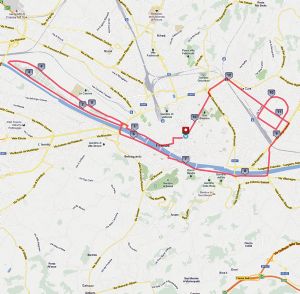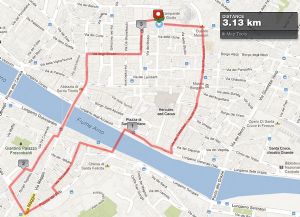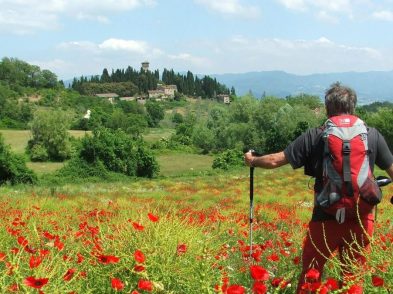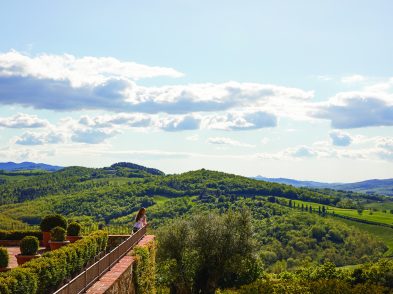If you
love food and wine and don’t mind getting your hands dirty to help save the
planet, then volunteering at an organic farm or vineyard through the
international nonprofit World Wide Opportunities on Organic Farms (WWOOF) may
just be the ticket. WWOOF helps volunteers find organic farms around the world,
where they work as farm hands. It is a great way to travel and explore another
culture, while getting hands-on experience of the farming and rural lifestyle
in exchange for room and board. Rosie Scammell tells of her unqiue experience
harvesting grapes at a vineyard in Piedmont. And with the Italian chapter of
WWOOF based in Castagneto Carducci, residents and visitors to Tuscany have
ample options to choose from.
Sunrise
among the grape vines, a lengthy lunch and an afternoon swim form the daily
rhythm of life at Cascina Zerbetta. In exchange for around five hours’ work
each day, volunteers receive accommodation, food and the opportunity to see
Italy beyond the tourist trail.
Zerbetta
is one of the many farms seeking people to pluck the harvest this month. While
it is testament to the richness of Italy’s northern wine region of Piedmont,
WWOOF also lists 30 vineyards in Tuscany.
All it
takes to get started is membership in WWOOF, which was started in Italy over a
decade ago. Twenty-five euro buys a year’s membership and access to the coveted
list of vineyards and farms available around the country. While some members
will trawl through the 500-plus options months in advance, members also receive
regular e-mails with information about those farms seeking ‘WWOOFers’
immediately.
As the
name suggests, WWOOF is an organisation of the willing rather than the
experienced. Even a well-tailored Florentine with a touch of enthusiasm can
help produce some of Tuscany’s most sought-after bottles. Time committed to the
vines ranges from a few days to weeks, although the occasional WWOOFer will
extend his or her stay to months.
Hosts
are as diverse as their volunteers, ranging from individuals to families or
groups of likeminded people that have organic ambitions. Languages spoken on
the farm are listed, and while English is widely spoken, there is ample
opportunity to speak Italian, in addition to innumerable others, including
Finnish, Russian and Turkish.
The
post-summer period is the perfect time to escape the wearied walls of Florence,
returning to the city a more sophisticated sommelier. Filling baskets of grapes
in the autumn air provides a welcome escape for the urbanite, but countryside
delight comes in every stage, from testing the grape’s ripeness to pouring the
evening’s glass.
While
Chianti Classico demands unwavering commitment to Sangiovese grapes, with just
a sprinkling of other varieties allowed into the mix, volunteering affords a
path to other blends. Spending the equivalent of Matteo Renzi’s budget in the
local enoteca may grant the appearance of wine wisdom, but it cannot compare to
strolling the vines with those who have laboured for years to produce their
favoured variety. Tasting grapes straight from the source is novel, but having
someone on hand to explain the flavours in real rather than lofty terms is
unique.
Volunteering
duties vary among vineyards, but gathering grapes is a simple, earthy task.
Under the August sun in Piedmont, the white grapes are picked before the heat
blazes, meaning an early moka on the
flame and a memorable morning light. The process is far from arduous, while the
closeness of the vines allows for tales to be shared within the eclectic crowd
of harvesters.
The
city slicker will rarely think further than the grape, barrel and bottle when
it comes to wine production, but through WWOOFing one can be exposed to every
stage. This is more likely to involve tasting grape juice for its sugar content
than stamping soles on the harvest in the name of tradition. Those with an
interest in organic viniculture can learn about the possibilities for producing
high-quality wine with more passion than pesticide.
This
approach extends to mealtime, as many wine producers also grow vegetables and
other crops. As one might imagine, the farms serve delectable dinners, where
the Italian adoration of food is played out over long evenings, with wine
fetched from the cellar below. The nuances of a nation are deciphered, bringing
the exchange far beyond one of work and wine. After a day under the sun, and
with corks cluttering the table, slumber comes easily.
Interesting in becoming a WWOOFer?
Visit www.wwoof.it/en/ for more information.
There
are 30 vineyards in Tuscany that are part of the WWOOF network and hundreds of
other farms seeking volunteers across Italy.







